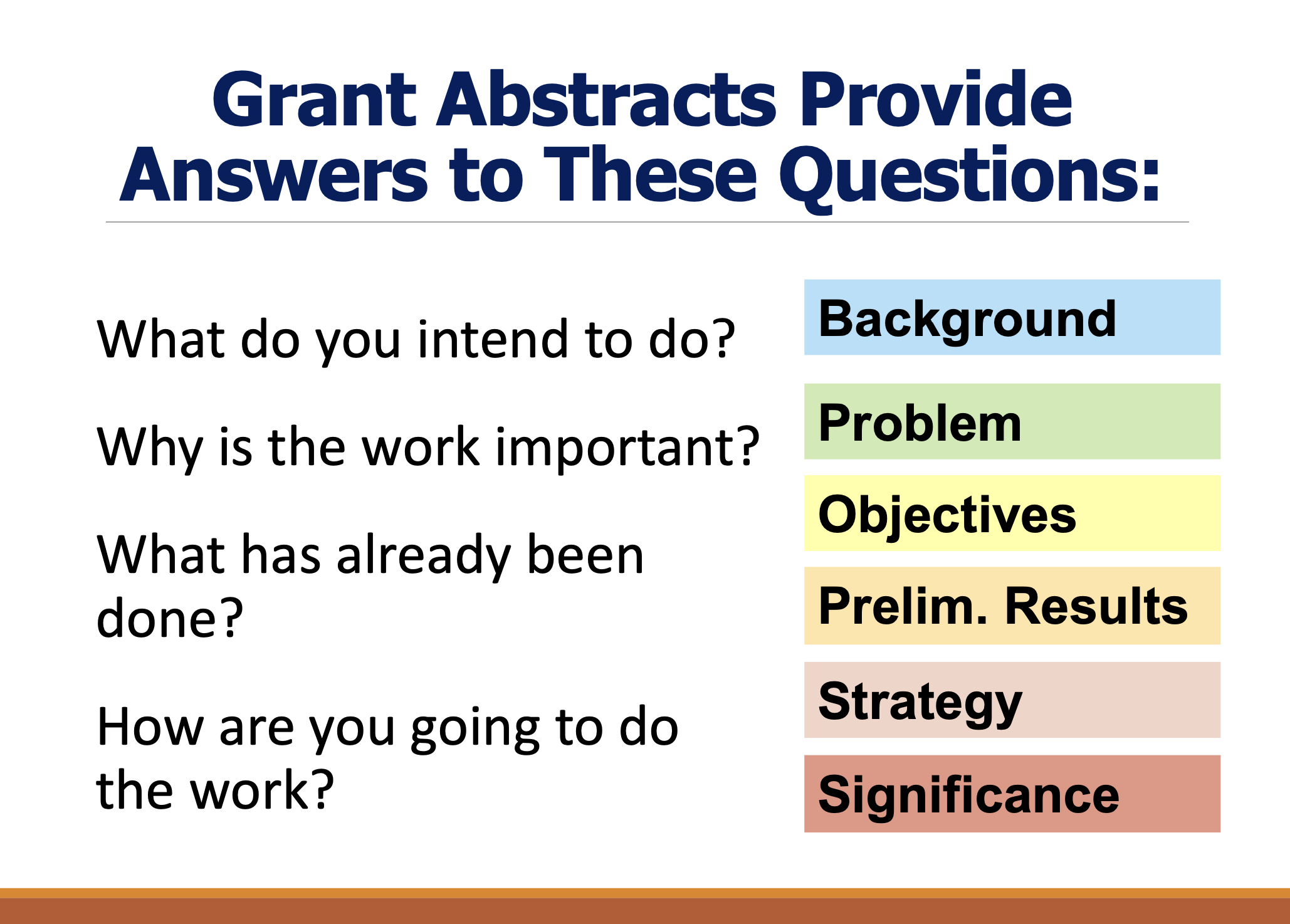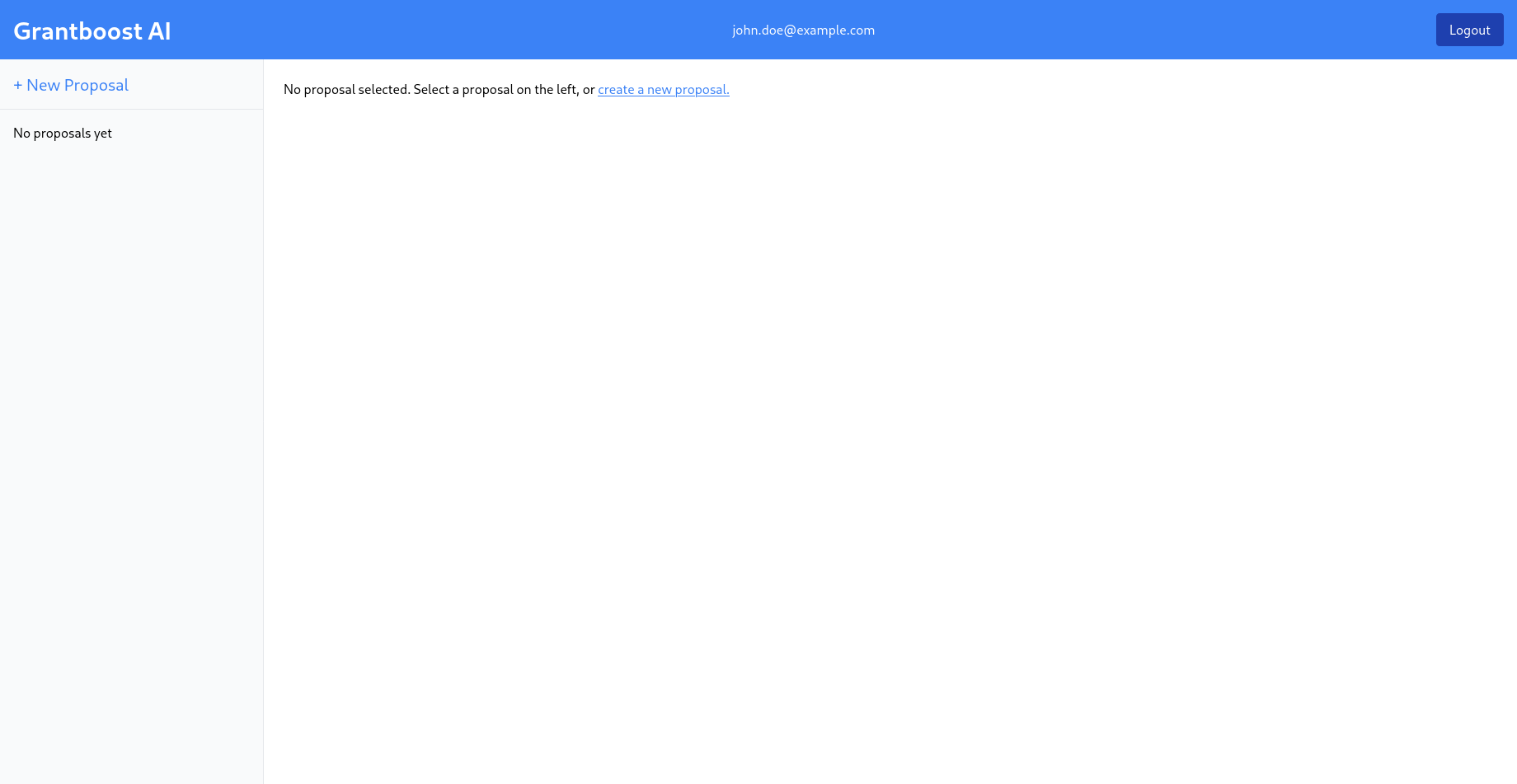
When it comes to research, grant proposals, and academic writing, project abstracts play a crucial role in summarizing the key elements of a proposal or research paper. However, many nonprofit grant writers, students and researchers often struggle to understand their meaning and purpose. We’ll explore what project abstracts are, why they are important, and provide an example to give you an idea.
A project abstract is a brief summary of a research project or proposal that outlines the main objectives, methods, and expected outcomes. It is typically the first section of a research paper or grant proposal and is designed to give readers a clear idea of what the project is about without having to read the entire document. Merriam-Webster defines an abstract as something that summarizes or concentrates the essentials of a larger thing or several things.
The length of a project abstract can vary depending on the requirements of the specific project or proposal. They are meant to be persuasive, but it’s best practice for an abstract to be concise and to the point.
It’s important to keep in mind that grant reviewers often have a lot of proposals to read and evaluate, so brevity and clarity are key.
As a general guideline, a project abstract should be between 150-250 words or one page in length. This length should be sufficient to convey the essential information about the project and its significance, without overwhelming the reader with unnecessary details. Carefully review the guidelines of each grant application and tailor the length of the project abstract accordingly.
Project abstracts serve a variety of important functions in grant writing. Firstly, they help to ensure that the project and/or proposal is clearly defined and that the objectives and expected outcomes are communicated effectively. This is particularly important when applying for grants or funding, as the abstract is often the first thing that reviewers will read.
In addition, project abstracts provide readers with a quick overview of the research topic and can help them to determine whether the project is relevant to their own work or interests. This can be particularly useful for grant proposal reviewers who are conducting dozens of reviews and trying to identify potential collaborators.
Finally, project abstracts can be used to promote the project or proposal to a wider audience. For example, they can be used in conference programs or on websites to promote the project and attract potential collaborators or funders.
A good project abstract is essential to any successful grant application or research proposal. It is the first thing that reviewers or potential collaborators will read, and it plays a crucial role in determining whether or not they will continue to read on. To write a compelling project abstract, it is important to answer the core questions that reviewers will have about your project.
According to Yale’s Center for Teaching and Learning a good project abstract answers these 4 questions.
1. What do you intend to do?
2. Why is the work important?
3. What has already been done?
4. How are you going to do the work?

The first question that a project abstract should seek to answer is: what do you intend to do? This question relates to the overarching problem that your project seeks to address and the background context around it. It is important to clearly articulate the aims and objectives of your project in the abstract, and to do so in a way that is concise and easy to understand. Ideally, the aims and objectives should be framed in a way that highlights the novelty and impact of your project.
The second question that a project abstract should address is: why is the work important? This question relates to the broader context of your research, and should explain why your project is relevant and timely. It is important to demonstrate the potential impact of your research, and to show how it relates to current trends or challenges in your field. This can be achieved by providing a brief overview of the state of the art in your area of research, and by highlighting the potential implications of your work for both theoretical understanding and practical application.
The third question that a project abstract should answer is: what has already been done? This question relates to the background and context of your research, and should demonstrate that you have a good understanding of the existing literature and research in your field. It is important to show how your project builds upon existing work, and to highlight any gaps or limitations in the current understanding of the problem that your research aims to address. This can be achieved by providing a brief overview of the relevant literature and research, and by highlighting any key findings or insights that your project aims to contribute.
The final question that a project abstract should seek to answer is: how are you going to do the work? This question relates to the methodology and approach that you will use to carry out your research. It is important to provide a clear and concise overview of the methods and techniques that you will use to collect and analyze data, and to explain how these methods are appropriate for addressing the research question or problem that you have identified. It is also important to highlight any potential challenges or limitations in your methodology, and to explain how you plan to address these challenges.
In addition to answering these core questions, a good project abstract should also be well-written and well-structured. It should be concise and to-the-point, while still providing enough detail to give reviewers a clear understanding of your project. It should also be free of jargon or technical language that might be difficult for non-specialists to understand.
To help ensure that your project abstract is effective and compelling, it can be useful to seek feedback from colleagues or mentors in your field. They can provide valuable insights into the strengths and weaknesses of your abstract, and can help you to refine your message and improve your writing. By taking the time to craft a well-written and compelling project abstract, you can increase your chances of securing funding, attracting collaborators, and making a significant contribution to your field of research. If you’re a small nonprofit, reach out to our team for free feedbcack on your proposal.
To help illustrate the key elements of a project abstract, let’s look at an example of a research proposal abstract, courtesy of our friends at Yale:
Global warming is arguably one of the most pressing concerns of our time. However, we lack an effective model to predict precisely by how much the temperature will rise as a consequence of the increased levels of CO2 and other factors.
The width of this range is due to several uncertainties in different elements of the climate models, including the variability in the Sun’s rate of energy output.
To gain greater insight into the relationship between solar energy output and global temperature, we propose to launch the internationally led ABC satellite in April 2018.
Our aim is to collect for 2 years data on the solar diameter and shape, oscillations, and photospheric temperature variation. We will assess these data to model solar variability. Our findings will dramatically advance our understanding of solar activity and its climate effects.
Source: Yale’s Teaching and Learning Center
In recent years, advancements in artificial intelligence (AI) technology have revolutionized the way we approach proposal writing. AI-powered tools can help writers to automate repetitive tasks, generate ideas, and even write content from scratch. These “AI Grants” are powered by tools and companies that specialize in the writing process. One such tool is Grantboost, a company that specializes in using AI to help researchers and grant writers to write project abstracts more efficiently. Another tool with more broad use cases is ChatGPT.
Grantboost uses Generative AI to take in information about the grant opportunity and information about the problem being solved to create custom proejct abstracts based on the the specific needs of the researcher or grant writer.
One of the key benefits of using an AI-powered tool like Grantboost or ChatGPT is that it can save writers a significant amount of time and effort. Writing a project abstract can be a time-consuming and challenging process, particularly for those who are not experienced in academic writing. When asking for funding, the language being used in the abstract is incredibly important. If you’re not experienced in technical writing or fundraising, it can be a big challenge just to understand what a good proposal looks like. By using an AI-powered tool like Grantboost, writers can generate a high-quality project abstract in a matter of minutes, rather than spending hours focusing on just trying to get the language and tone right.
In addition, using an AI-powered tool can help to ensure that the project abstract is of high quality and meets the requirements of the funding agency or academic institution. Grantboost’s takes in information about the Grant opportunity to make sure that the abstract is aligned with the priorities of the Funder. This means that the project abstract generated by the tool is more likely to be successful in securing funding or attracting attention from potential collaborators.
Of course, it is important to note that using an AI-powered tool to write a project abstract does not mean that the writer can simply sit back and let the tool do all the work. The writer still needs to provide input and guidance to the tool to ensure that the project abstract accurately reflects the research project or proposal. This might involve inputting key information such as the research question, methodology, and expected outcomes, as well as providing feedback on the generated project abstract and making any necessary revisions.
In conclusion, AI-powered tools like Grantboost can be a valuable resource for writers who are looking to streamline the process of writing project abstracts. By using machine learning to generate successful grant proposals and research abstracts, these tools can generate high-quality project abstracts in a matter of minutes, saving writers time and effort. However, it is important to note that these tools should be used in conjunction with human input and guidance to ensure that the project abstract accurately reflects the research project or proposal. By combining the power of AI with human expertise, writers can produce project abstracts that are both efficient and effective.
Project abstracts are an important component of academic writing that provide a brief summary of a research project or proposal. They serve to define the project, communicate objectives and expected outcomes, and can be used to promote the research to a wider audience. By understanding the key elements of a project abstract, researchers and students can ensure that their work is effectively communicated and stands out in a crowded field of academic writing.
As a nonprofit grant writer, you know the importance of making an impact in your community. That’s why we’re excited to announce Grantboost - a platform designed specifically to help you write better grants faster.
Grantboost is a game-changer, my friends. It’s a one-stop-shop for all your grant writing needs, and it’s completely free. That’s right, free. We’re about to launch our closed beta, and we’re giving you the opportunity to be one of the first to try out our revolutionary ✨project abstract generator✨

The project abstract generator is a powerful tool that will help you create compelling abstracts for your grant proposals in just a few clicks. No more struggling to find the right words or spending hours writing and rewriting. With Grantboost, you’ll have everything you need to make a real difference in your community.
So what are you waiting for? Sign up for our closed beta today and join the revolution. With Grantboost, you’ll be able to write better grants faster than ever before.